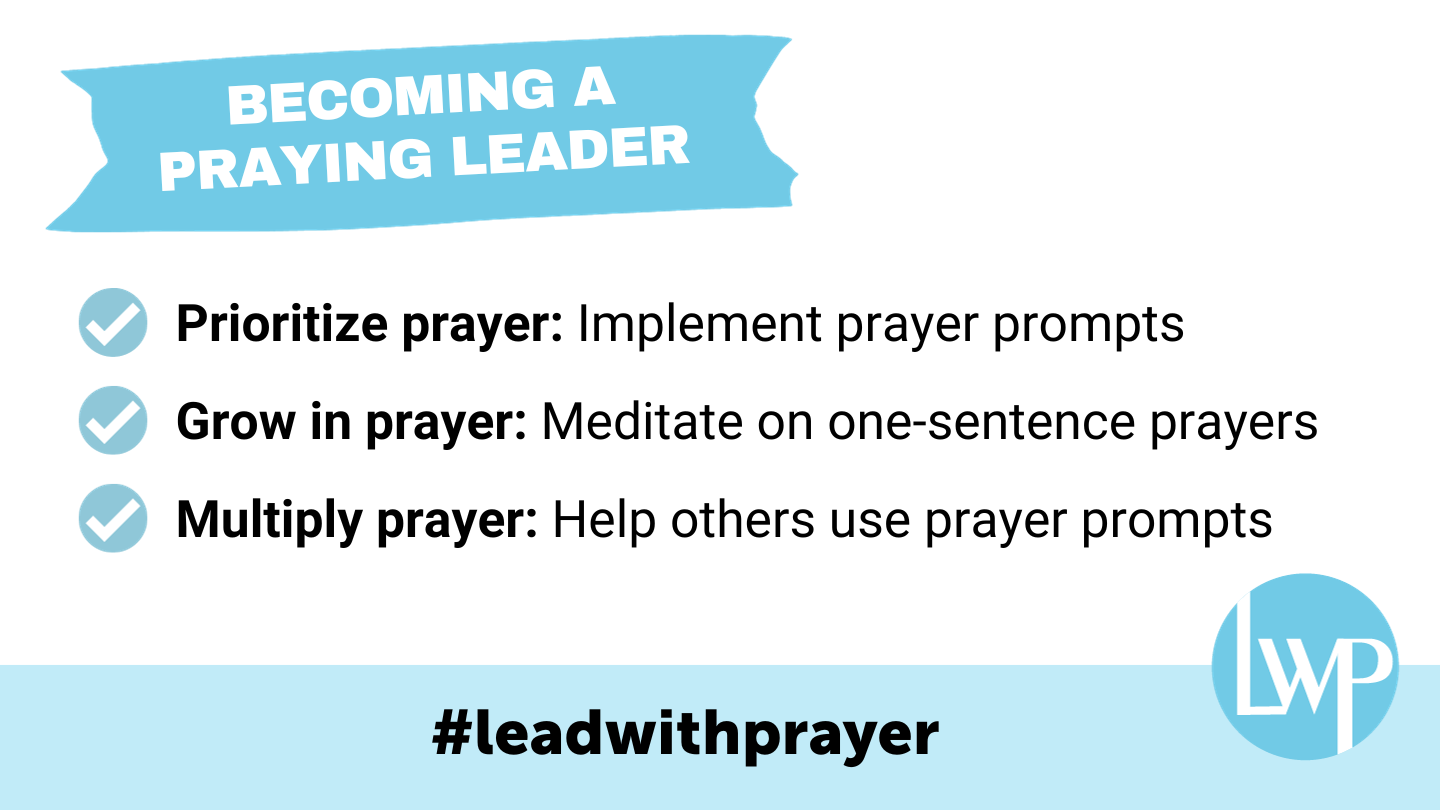Plan Info
Lead With Prayer: Cultivate Personal and Organizational Prayer HabitsSample

Practicing God's Presence
Is it really possible to “pray without ceasing” as the apostle Paul instructs (1 Thessalonians 5:17)?
A few hundred years ago, a monk named Brother Lawrence tried to spend every moment aware of God. Lawrence’s dedicated prayer times spilled out into his everyday life as he practiced bringing Jesus into every quotidian task as well as every act of kindness or service. He called this experience “practicing the presence of God.” In practicing the presence of God, Brother Lawrence found the deep joy available to each of us when we learn to truly abide in Christ.
King David, too, understood the importance of pursuing ongoing connection with God. In Psalm 16:8 (ESV), he wrote, “I have set the Lord always before me.” The word he used, set, is an action verb. It’s something we continually and intentionally make an effort to do. Dallas Willard said it this way: “The first and most basic thing we can and must do is to keep God before our minds.”
In the apostle Paul’s exhortation to continual prayer, he used the Greek word adialeiptos: a word often used to describe a nagging cough. Though the person didn’t cough every moment, he or she would cough often and could be described as “still coughing.” Similarly, Paul urges us to become people who pray and are still praying throughout the day.
Jesus led this kind of life. Though He had times of focused prayer, He never truly finished praying. He spent every moment with the Father, listening to and abiding in Him (John 8:29).
To cultivate the constant awareness of God to which we’ve been called, we must rely on both plans (e.g., a Rule of Life) and prompts.
Centuries ago, bells would resound each hour from towers erected in town centers, reminding residents to lift their hearts to the Father. Though few today live in close proximity to a bell tower, we can construct figurative “bell towers” in our own lives by designating certain moments—such as meals, meetings, or moods—as prayer prompts. We can train ourselves to direct our thoughts to God throughout the day.
Brother Lawrence wrote that experiencing God’s presence “did not depend upon changing our works, but in doing that for God’s sake, which we commonly do for our own.” God does not want our relationship with Him to be confined to only a portion of our day. He created us to continually abide in Him, returning our thoughts to Him at every possible moment.
____________
Application:
To prioritize prayer: Choose a frequently occurring daily event (meals, phone calls, etc.) as a prompt to remind you to pray.
To grow in prayer: Pray one-sentence prayers throughout the day to direct your thoughts to God. You can find a list of one-sentence prayers at www.leadwithprayer.com.
To multiply prayer: Like Brother Lawrence, encourage your family or others you lead to establish prompts to remind themselves to pray.
About this Plan

Jesus proved that prayer and leadership belong together. While many Christian leaders struggle with lackluster prayer lives, others have discovered an intentional prayer life is the nonnegotiable constant of lasting, f...
More
We would like to thank Hope International for providing this plan. For more information, please visit: https://www.leadwithprayer.com










